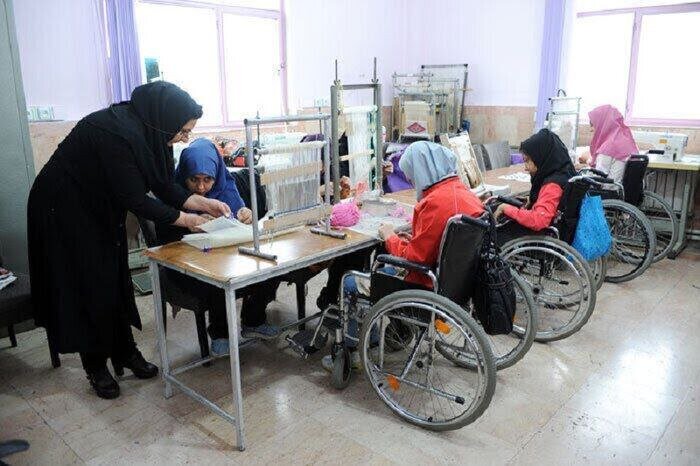Iran marking national welfare week

TEHRAN –National welfare week is being held across the country from July 16 to 22. This year, the week is observed with the theme ‘together for well-being; participating today, empowering tomorrow’.
The head of the Welfare Organization, Seyed Javad Hosseini, said that 10,566 housing, employment, social, and rehabilitation projects with a total investment of 520 billion rials (some 580,000 dollars) will be inaugurated on the occasion of the 54th anniversary of national welfare week, IRNA reported.
About 77 percent of the projects focus on employment, 21 percent on housing, and the remaining two percent on the social and rehabilitation sector, the official noted.
Moreover, 359 projects will be started, most of which will be implemented in Kerman, Lorestan, and Isfahan provinces.
Over the past year, 14,000 housing units were provided to beneficiaries and people with disabilities. 45,966 houses are under construction. And 1,942 housing units will be handed over to people with disabilities during the week, Hosseini highlighted.
The official went on to announce the launch of a job support fund. “Thanks to welfare services, nearly 200,000 beneficiaries and individuals with disabilities were employed, and the service sector accounts for 62 percent of the employment.
Welfare Organization's services
The Welfare Organization also supports and contributes to improving the quality of life for the elderly, children living in childcare centers, and women heads of households.
The Welfare Organization is planning to implement a forty-day training program for old people to improve their quality of life.
The program will include 240 different educational subjects such as health, life skills, arts, communication skills, digital and entrepreneurship, music, sports, games, and other leisure activities, IRNA quoted Ahmad Delbari, an official with the Welfare Organization, as saying.
It will be implemented as a pilot program in Tehran. Each individual will register to participate in the program for forty days within the three-month duration, he said.
Participants will be divided into two groups to attend the sessions either on odd or even days, with educational programs provided daily in two different parts. The first 15 minutes will be dedicated to physical workout, the next 45 minutes will focus on specialized training, and 90 minutes will be allocated to recreational programs. During the educational courses, each person will receive detailed pieces of training that are essential for self-care and improving their quality of life, the official noted.
Some short-term educational programs will be accessible through particular websites introduced by centers, Delbari added.
Empowering children
Currently, there are 635 childcare centers, of which 33 are nurseries. Five thousand people work in these centers, and nine thousand children are benefiting from services in these centers, IRNA quoted Hamid-Reza Alvand, an official with the Welfare Organization, as saying.
The Welfare Organization is planning to empower the children by training them to respect social values, and learn social skills, strengthening their faith, and helping them to be independent, the official added.
Child adoption has surged by 2.5 times compared to ten years ago, as around 2,500 children are adopted annually.
For adoption, criteria like mental health, the ability to take care of a child, no addiction, no criminal record, and bad reputation, as well as proper income, must be met. The approach is the result of studying the adoption process in 10 countries around the world.
Supporting women heads of household
According to a recent report by the Statistical Center of Iran (SCI), the number of female heads of households supported by the Welfare Organization has increased from 180,120 individuals in 2017 to 278,353 in 2023.
The majority of women heads of households are widowed, divorced, or women in families where the man does not have any income due to illness or disability, but they are not necessarily the oldest member of the families, Mehr news agency reported.
The increase in the number of female-headed households in the world has resulted in many economic, health, and social challenges.
Empowering women is one of the key components of sustainable development, and women heads of households are no exception.
MT/MG
Leave a Comment